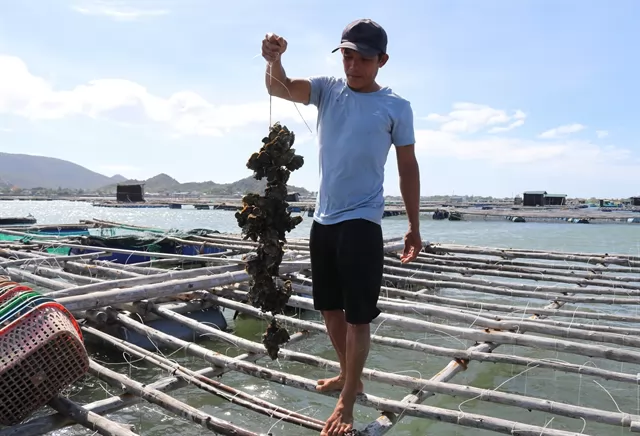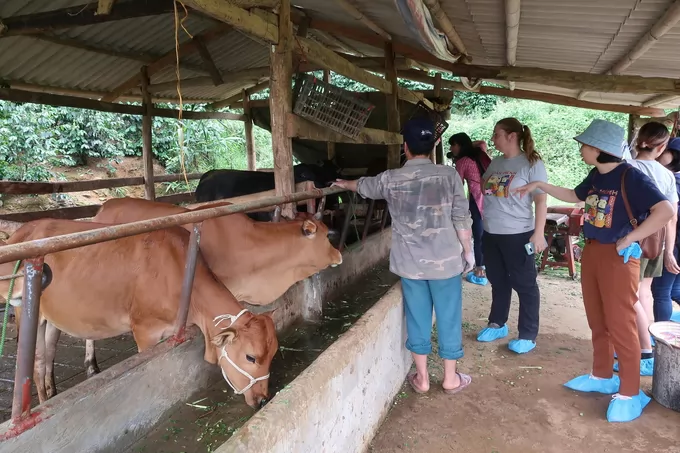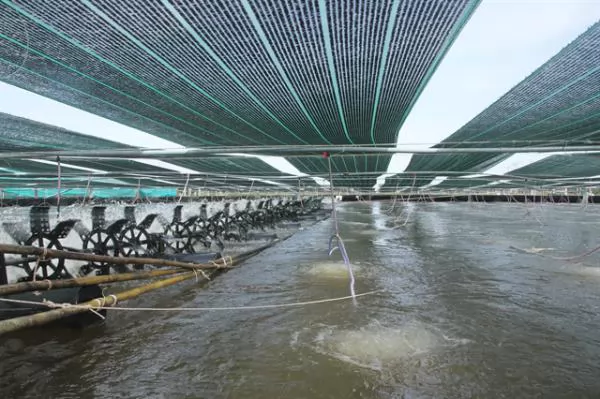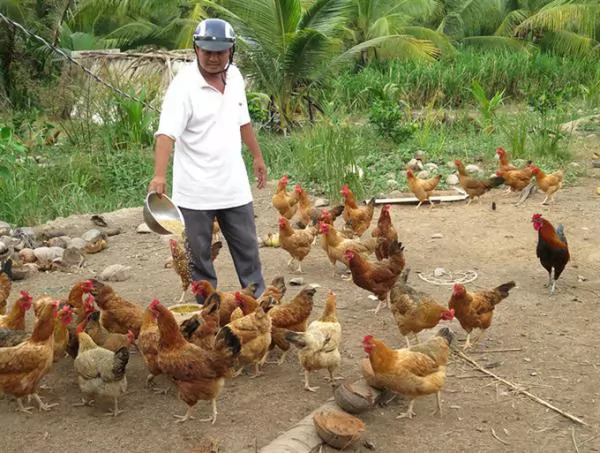Ninh Thuận expands marine aquaculture

Nguyễn Thanh Duy harvests Pacific oysters bred in floating cages in Nại Lagoon in Ninh Thuận Province. — VNA/VNS Photo Nguyễn Thành
The south-central province of Ninh Thuận is focusing on farming high-value marine fish, lobsters and bivalve mollusc to improve farmers’ incomes.
NINH THUẬN — The south-central province of Ninh Thuận is focusing on farming high-value marine fish, lobsters and bivalve mollusc to improve farmers’ incomes.
It is also meant to reduce near-shore fishing and protect the environment.
In Nại Lagoon in Ninh Hải District, farmers breed oysters in floating cages and earn high incomes.
Nguyễn Thanh Duy breeds Pacific oysters in 15 floating cages with a surface area of 60sq.m and output of 3.5-4 tonnes a year each.
“After deducting all costs, I earn VNĐ30 million (US$1,300) per cage per year, and this has stabilised my family’s life,” he said.
Farmers living around the lagoon have been farming oysters for a very long time, but it was not systematic and oysters for breeding were caught in the wild, and so efficiency was not high, he said.
Five years ago the province’s Breeding Centre for Marine Aquaculture taught local farmers how to raise Pacific oysters in floating cages, he said.
Pacific oysters do not require much tending and eat food available in nature, and can be harvested within four months.
Some 145 households raise them in 840 floating cages in Nại Lagoon.
Nguyễn Khắc Đông, deputy chairman of the Ninh Hải District People’s Committee, said to sustainably develop breeding of Pacific oysters, it is necessary to have oyster seeds that are disease-free and have clear origins.
The model has great potential for further development and the district has zoned breeding areas in Nại Lagoon, he said.
Besides, the coastal districts of Ninh Hải and Thuận Nam and Phan Rang – Tháp Chàm City are breeding lobsters, marine fish, mud crab, blue swimming crab, and bivalve mollusc.
The province has 2,200 lobster floating cages, according to its Fisheries Sub-department.
Farmers also breed marine fish such as cobia, pomfret and grouper in around 900 cages in between lobster crops.
Mud crab and blue swimming crab are raised on 40ha.
With the prices of marine aquatic species being stable, most farmers find them profitable.
Tropical rock lobster is bought at VNĐ1.5-2.5 million ($63-105) a kilogramme.
Mud crab and blue swimming crab fetch VNĐ240,000 – 280,000 ($10-12).
The province has great potential for marine aquaculture but most farmers breed on a small scale and lack infrastructure and knowledge of breeding techniques, according to local authorities.
Đặng Kim Cương, director of the Department of Agriculture and Rural Development, said the province is calling for investment in hi-tech marine aquaculture and breeding young of marine aquatic species.
It plans to produce 40 million seeds and fry this year, invest in infrastructure and develop areas that produce seeds and breed marine species, he said.
It is encouraging co-operatives, co-operative groups and firms to tie up for developing value chains for marine aquaculture, he said.
It is working with research institutes to propagate advanced breeding techniques to cope with the impacts of climate change.
It encourages the use of high-density polyethylene floating cages made using Norwegian technology since they can withstand strong winds and waves better than traditional ones.
Along its 105km coastline, the sea is clean and has high and consistent salinity, ideal for marine aquaculture. — VNS
Maybe you are interested

SAPLING initiative strengthens biosecure livestock farming techniques in Son La
Up to 90% of farmers participating in the project in Mai Son and Phu Yen districts now have a better understanding of animal diseases and are aware of the importance of vaccinating their livestock.

Sóc Trăng shrimp farming area to remain unchanged in 2021
SÓC TRĂNG — The Cửu Long (Mekong) Delta province of Sóc Trăng plans to breed brackish water shrimp species in more than 51,000ha of ponds next year, the same as this year.

Province reduces poverty by teaching households new farming models
Viet Nam News / BẾN TRE - Authorities in the Mekong Delta province of Bến Tre have taught poor households effective farming models to help them escape poverty.





